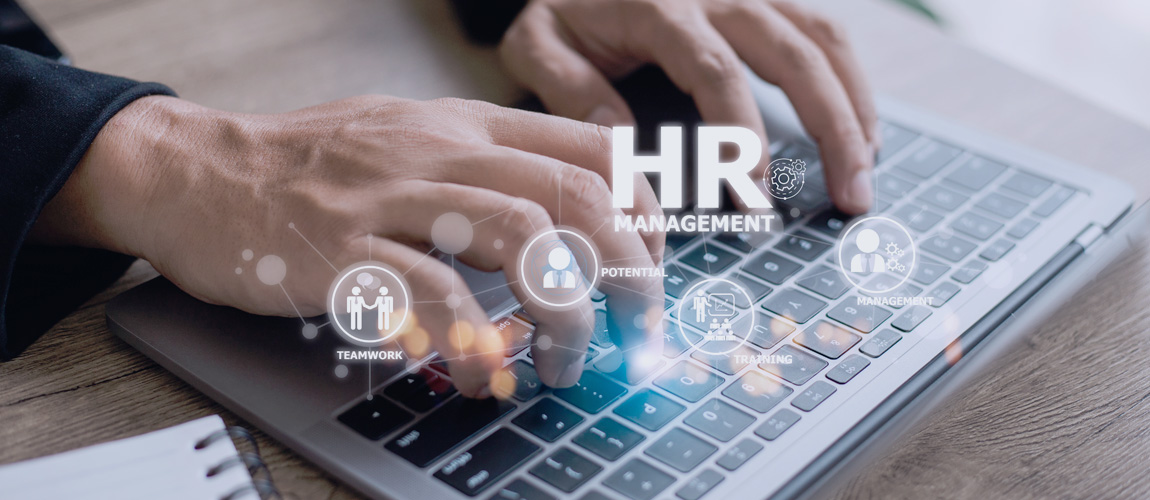As a human resources professional, I understand the importance of staying ahead of the game when it comes to HR technology. In today's digital age, technology is evolving at an unprecedented rate, and it's critical to keep up with the latest developments to streamline HR processes, improve employee engagement, and enhance the overall employee experience. In this article, I'll explore some of the latest HR tech trends to incorporate in 2023, including artificial intelligence and machine learning, virtual and augmented reality, remote work technology, employee experience platforms, and data analytics and predictive insights.
The Importance of Staying Ahead of the Game
In today’s fast-paced business environment, staying ahead of the game is essential to achieve organizational success. To remain competitive, businesses need to embrace new technologies that can help them streamline their operations, reduce costs, and improve the overall employee experience. By embracing the latest HR tech trends, companies can attract and retain top talent, optimize HR processes, and stay ahead of the competition.
Moreover, staying ahead of the game can help businesses build a culture of innovation and adaptability. By continuously exploring new technologies and experimenting with new solutions, companies can foster a culture of creativity and learning that can help them stay agile and responsive to changing market conditions.
HR Tech Trends for 2023
Artificial Intelligence and Machine Learning
Artificial intelligence (AI) and machine learning (ML) are transforming HR processes, from recruitment and onboarding to performance management and employee engagement. AI and ML can help automate repetitive tasks, reduce bias, and provide predictive insights into employee behavior and performance.
One of the most promising applications of AI and ML in HR is predictive analytics. By analyzing large amounts of data, such as employee performance metrics, HR professionals can identify patterns and trends that can help them make data-driven decisions. For example, predictive analytics can help identify employees who are at risk of leaving the company, allowing HR professionals to intervene and prevent turnover.
Virtual and Augmented Reality
Virtual and augmented reality (VR/AR) technologies have the potential to revolutionize employee training and development. VR/AR can provide immersive learning experiences that simulate real-life scenarios, allowing employees to practice and develop new skills in a safe and controlled environment.
Moreover, VR/AR can help organizations reduce training costs and improve the effectiveness of training programs. For example, VR/AR can be used to train employees on complex procedures, such as operating heavy machinery, without the need for expensive equipment or risking injury.
Remote Work Technology
The COVID-19 pandemic has accelerated the adoption of remote work technology, and it’s likely that remote work will become a permanent feature of the modern workplace. To support remote work, HR professionals need to embrace new technologies that can help them manage remote teams, facilitate collaboration, and ensure employee productivity.
Some of the most promising remote work technologies include video conferencing software, project management tools, and communication platforms. By leveraging these technologies, HR professionals can ensure that remote employees remain connected and engaged, regardless of their location.
Employee Experience Platforms
Employee experience platforms (EXP) are designed to improve the overall employee experience by providing a personalized and seamless HR experience. EXPs can help HR professionals automate HR processes, such as onboarding and benefits nrolment, and provide employees with a central hub for accessing HR information and resources.
Moreover, EXPs can help HR professionals collect feedback from employees and use this feedback to improve HR processes and policies. By providing personalized and responsive HR services, EXPs can help organizations attract and retain top talent and enhance the overall employee experience.
Data Analytics and Predictive Insights
Data analytics and predictive insights are becoming increasingly important in HR, as HR professionals seek to make data-driven decisions and optimize HR processes. By analyzing HR data, such as employee performance metrics and engagement surveys, HR professionals can identify areas for improvement and make data-driven decisions.
Moreover, predictive analytics can help HR professionals identify patterns and trends that can help them predict employee behavior and performance. For example, predictive analytics can help identify employees who are at risk of burnout, allowing HR professionals to intervene and prevent burnout before it occurs.
Integrating HR Tech Trends into Your Organization
Integrating HR tech trends into your organization can be challenging, but there are several strategies that can help you succeed. First, it’s essential to identify your organization’s HR pain points and explore how technology can help solve these pain points. For example, if your organization struggles with high turnover rates, you may want to explore how predictive analytics can help you identify employees who are at risk of leaving.
Second, it’s critical to involve key stakeholders, such as HR professionals, managers, and employees, in the technology adoption process. By involving these stakeholders, you can ensure that the technology you choose meets their needs and addresses their pain points.
Finally, it’s essential to provide adequate training and support to ensure that employees can effectively use the new technology. By providing training and support, you can ensure that employees feel comfortable and confident using the new technology, leading to higher adoption rates and improved outcomes.
Benefits of Incorporating HR Tech Trends
Incorporating HR tech trends can provide several benefits for your organization, including:
- Streamlining HR processes: By automating repetitive tasks and reducing manual processes, HR tech trends can help streamline HR processes and reduce administrative burdens.
- Improving employee engagement: HR tech trends can help improve employee engagement by providing a personalized and seamless HR experience that meets their needs.
- Optimizing HR decisions: By providing data-driven insights, HR tech trends can help HR professionals make informed decisions that can improve organizational outcomes.
- Enhancing the employee experience: HR tech trends can help enhance the overall employee experience by providing employees with access to HR information and resources that are tailored to their needs.
Challenges of Incorporating HR Tech Trends
Incorporating HR tech trends can also present several challenges for your organization, including:
- Resistance to change: Employees and managers may be resistant to change, particularly if they are comfortable with existing HR processes.
- Integration issues: Integrating new technology with existing HR systems can be challenging, particularly if these systems are outdated or incompatible.
- Cost: Implementing new HR technology can be expensive, particularly if you need to invest in new hardware or software.
- Data privacy and security: HR technology can involve the collection and analysis of sensitive employee data, which raises concerns about data privacy and security.
Conclusion
In conclusion, staying ahead of the game when it comes to HR technology is essential to optimize HR processes, improve employee engagement, and enhance the overall employee experience. By embracing the latest HR tech trends, such as artificial intelligence and machine learning, virtual and augmented reality, remote work technology, employee experience platforms, and data analytics and predictive insights, you can stay competitive and achieve organizational success.
To successfully incorporate HR tech trends into your organization, it’s essential to involve key stakeholders, provide adequate training and support, and identify your organization’s HR pain points. While incorporating HR tech trends can present some challenges, the benefits of doing so, such as streamlining HR processes, optimizing HR decisions, and enhancing the employee experience, make it a worthwhile investment for any organization.




